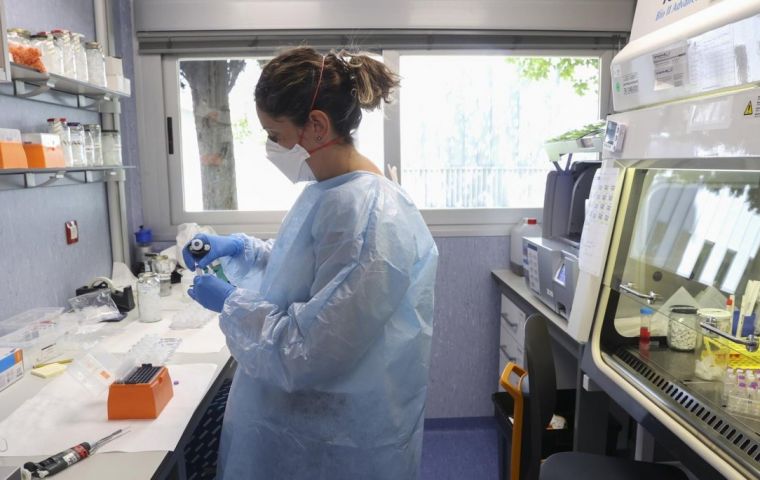MercoPress. South Atlantic News Agency
Local transmission of monkeypox confirmed in Brazil
 Monkeypox patients are predominantly male
Monkeypox patients are predominantly male The Brazilian city of Rio de Janeiro Friday confirmed the existence of local transmission of the monkeypox virus, after two more cases were detected in men aged 25 and 30 without either a recent travel record or contact with anyone with one.
“The patients have no travel history or contact history with anyone who has traveled. Therefore, it is a local transmission. In all, there are three confirmed cases in the city,” Rio de Janeiro City health authorities said, according to Agencia Brasil.
The patients were isolated at their homes undergoing treatment for their symptoms, it was also reported. “We will follow up and monitor these patients and their contacts,” the local authorities also pointed out.
Meanwhile, 3 more cases of the malady have been confirmed in the city of São Paulo. None of the three patients -all men, aged between 24 and 37- had a travel history to countries with confirmed cases and were therefore labeled as autochthonous cases.
São Paulo health officials have explained they were working to establish the contacts of those infected, who were reported to be isolated, with a stable clinical picture, without complications, and under monitoring by State and Municipal Health Secretariats.
With these three cases, the total number in São Paulo rose to 10, with 6 in the capital, 2 in Indaiatuba, 1 in Santo André, and 1 in Vinhedo.
The total number nationwide by Thursday evening was 14, including 2 in Rio de Janeiro and 2 more in Rio Grande do Sul. Other 10 cases were under investigation in Ceará, Rio de Janeiro, Santa Catarina, Acre, and in Rio Grande do Sul.
The first case of monkeypox was registered in Brazil June 8, in São Paulo, in a 41-year-old man who traveled to Spain and Portugal. Last Monday, the state of Rio de Janeiro confirmed the diagnosis in a 25-year-old patient who lives in Maricá and had not traveled abroad but had admitted to being in contact with foreigners.
Monkeypox is transmitted through close contact. The infection can be through the respiratory tract, but it requires close face-to-face contact for a prolonged time. Another way of infection is through the blister-like sores that monkeypox causes on the skin.
Experts say that the chances of monkeypox becoming a pandemic are small because of the virus' low transmission capacity. However, they say it is important to remain vigilant, with effective screening and diagnostic methods.




Top Comments
Disclaimer & comment rulesCommenting for this story is now closed.
If you have a Facebook account, become a fan and comment on our Facebook Page!